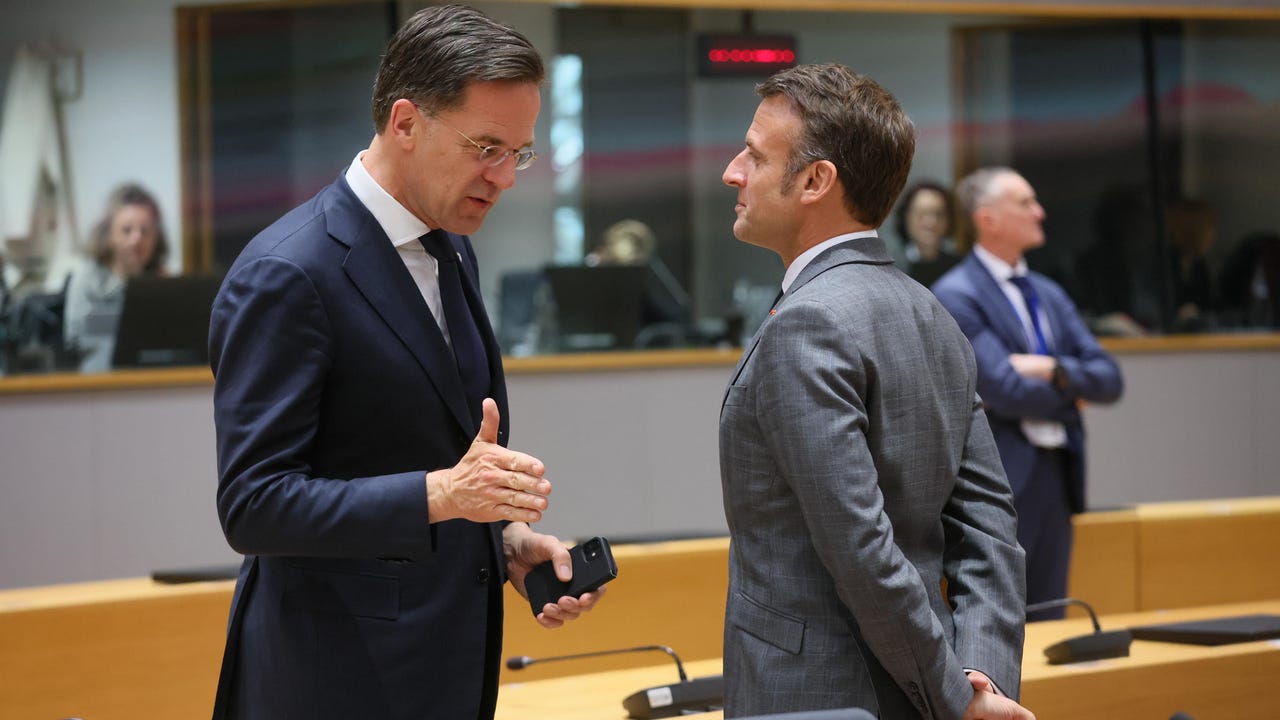European heads of state and government met this Wednesday in the Community capital for a summit originally planned to address the need to improve European competitiveness, but which was overshadowed on the first day by the delicate international situation.
A day after Foreign Ministers of the Twenty-Seven reached a political agreement on doubling sanctions against Iran over its drone attack on Israel last Saturday, the differences are evident when it comes to including the Guard among the punished military wing, the created shortly after the Islamic Revolution of 1979 to protect the theocratic regime. The United States considers this group a terrorist organization and some capitals believe that the EU should follow this path and sanction the organization.
Entering the meeting this Wednesday, the Belgian Prime Minister said, Alexander de Croo, assured that this decision of the Twenty-Seven is “a very important signal”. But not all countries agree. France and Germany oppose it, believing that this move could completely destroy any dialogue with the Ayatollah regime. Entering the meeting, the French President said, Emmanuel MacronHe expressed caution and assured that “our duty is to extend these sanctions but to ensure that they are focused on the regime in Tehran.”
Brussels is currently hiding behind technical terms because in order to classify an organization as terrorist, a complaint from a state is required. The highest representative of Community diplomacy, Josep Borrellhas commissioned a report from its legal services to analyze the situation.
The Twenty-Seven agreed on Tuesday to double the list of restrictive measures against Iran to limit its ability to build drones and missiles, and also to include the supply of weapons from the Ayatollah regime to its allies in the region. In this sense, Borrell has instructed the Foreign Action Service to begin preparing this new round of penalties and it is expected that this issue will be discussed again at the meeting of the 27 Foreign Ministers next Monday in Luxembourg.
On July 20, 2023, European capitals gave the green light to a new sanctions framework when they found that Iran was supporting Moscow in the war in Ukraine through its sophisticated drones, which are more difficult to detect than traditional radars.
This new regime bans the export from the European Union to Iran of components used in the construction and production of unmanned aerial vehicles, and also imposes travel restrictions and asset freezing measures against both individuals and companies involved in the participate in the production of these drones. Now the aim is to improve this framework to include rockets and even add new materials used to make drones.
Ukraine is also on the agenda
This Wednesday, European leaders also spoke about the need to continue helping Ukraine. Germany and the Netherlands have asked their remaining counterparts to follow in their footsteps and supply Patriot anti-aircraft systems. In addition, Belgium has denounced Russia’s interference in the upcoming European elections. The Belgian authorities are investigating what happened and De Croo has asked the Twenty-Seven for a new round of sanctions against Russia because of these activities.
In a joint letter with the Czech Prime Minister, after suspicious payments to certain members of the European Parliament were discovered, the two leaders called on the European Anti-Fraud Office, OLAF; and the European Public Prosecutor’s Office is investigating these cases. In the event that it cannot act, Belgium asks to open the debate so that these organizations can be given more powers and take on these types of tasks.
